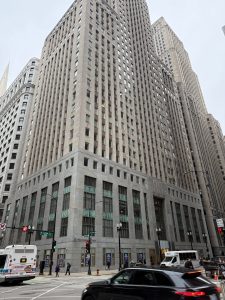 In the case captioned, Caminero v. MICHAEL FLYNN, Esq, PLLC, 2025 NY Slip Op 3701 (NY Appellate Division, 2nd Department 2025), the plaintiff sued his lawyer for legal malpractice arising out of an action under FELA, the Federal Employers’ Liability Act 45 USC §51. Caminero alleged that she was injured while working as a police officer for the Metropolitan Transit Authority. Plaintiff alleged that the law firm did not diligently prosecute the lawsuit. The Defendant law firm argued that plaintiff’s claims were barred under the doctrine of collateral estoppel. In New York a defendant can move for summary judgment if he can establish a prima facie case that he met the standard of care.
In the case captioned, Caminero v. MICHAEL FLYNN, Esq, PLLC, 2025 NY Slip Op 3701 (NY Appellate Division, 2nd Department 2025), the plaintiff sued his lawyer for legal malpractice arising out of an action under FELA, the Federal Employers’ Liability Act 45 USC §51. Caminero alleged that she was injured while working as a police officer for the Metropolitan Transit Authority. Plaintiff alleged that the law firm did not diligently prosecute the lawsuit. The Defendant law firm argued that plaintiff’s claims were barred under the doctrine of collateral estoppel. In New York a defendant can move for summary judgment if he can establish a prima facie case that he met the standard of care.
Collateral Estoppel bars a party from relitigating an issue that the party lost in a prior proceeding. New York defines it as: “‘The doctrine of collateral estoppel, a narrower species of res judicata, precludes a party from relitigating in a subsequent action or proceeding an issue clearly raised in a prior action or proceeding and decided against that party or those in privity, whether or not the tribunals or causes of action are the same” (Ryan v. New York Tel. Co., 62 NY2d 494, 500 [emphasis omitted]; see Matter of Maione v. Zucker, 210 AD3d 776, 777). “`This doctrine applies only if the issue in the second action is identical to an issue which was raised, necessarily decided and material in the first action, and the . . . party to be bound had a full and fair opportunity to litigate the issue in the earlier action'” (Matter of Maione v. Zucker, 210 AD3d at 777 [alteration and internal quotation marks omitted], quoting City of New York v. Welsbach Elec. Corp., 9 NY3d 124, 128).'”
The court rejected the collateral estoppel defense on the ground that the law firm did not prove that the issues determine in the two cases were identical: “Here, the defendants asserted that in light of the denial of an application by the plaintiff for accidental disability retirement benefits and the dismissal of the plaintiff’s proceeding pursuant to CPLR article 78 to review the denial of that application, the plaintiff was collaterally estopped from claiming that she suffered a work-related injury. Therefore, the defendants argued that the plaintiff could not establish that she would have prevailed in the FELA action but for the defendants’ alleged negligent failure to prosecute that action. Contrary to the defendants’ contention, however, the defendants failed to demonstrate an identity of issues between the FELA action and the determination of either the plaintiff’s application for accidental disability retirement benefits or the CPLR article 78 proceeding (see Weslowski v. Zugibe, 167 AD3d 972, 975). Whereas the FELA action involved the issue of whether the MTA’s alleged negligence played any part in producing the injuries for which the plaintiff sought damages (see Rogers v. Missouri Pacific R. Co., 352 US 500, 506; Grasso v. Long Is. R.R., 306 AD2d 378, 379), that issue was not litigated and necessarily decided against the plaintiff either in the context of her application for accidental disability retirement benefits or in the CPLR article 78 proceeding (see Kenny v. New York City Tr. Auth., 275 AD2d 639, 640). Thus, the defendants failed to establish their prima facie entitlement to judgment as a matter of law dismissing the cause of action alleging legal malpractice based upon the doctrine of collateral estoppel. The defendants also failed to establish, prima facie, that the MTA neither created nor had actual or constructive notice of the alleged dangerous conditions at issue in the FELA action (see Lauzon v. Stop & Shop Supermarket, 188 AD3d 856, 857; Ariza v. Number One Star Mgt. Corp., 170 AD3d 639, 639). Thus, the defendants failed to demonstrate, prima facie, that the plaintiff would not have prevailed in the FELA action but for their alleged failure to prosecute that action (see Detoni v. McMinkens, 147 AD3d 1018, 1020).
 Chicago Legal Malpractice Lawyer Blog
Chicago Legal Malpractice Lawyer Blog









